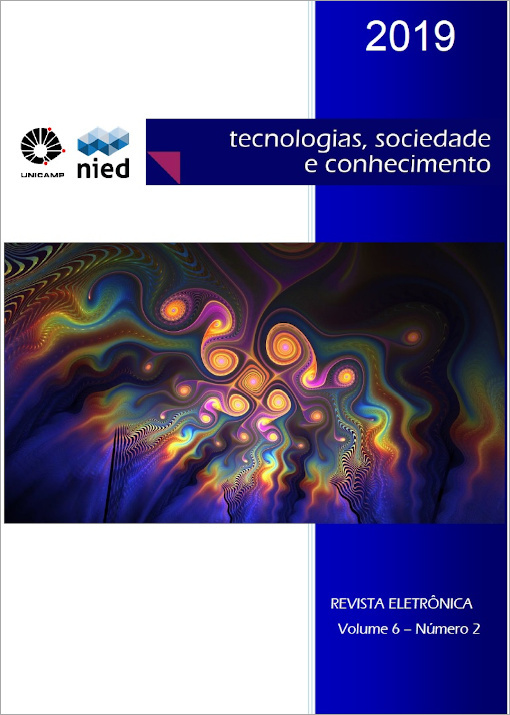Abstract
This paper presents the project called EXPOTED (Technology Education Exhibition), which inserts Computational Thinking in 15 schools of the Ananindeua-PA, Municipal Education Network, in the state of Pará, Brazil, through Creative Learning Workshops and active methodologies to their teachers and students.They are proposed by the Department of Educational Informatics (DIED), which applied these approaches within the context of these schools, most of them with computer rooms. As objectives, the priority was to insert the Scratch programming language through Creative and Unplugged Computing, as well as hands-on activities, such as introducing educational robotics with alternative materials, including: cardboard, pet bottles, e-waste, among others. It stands out as a result approximately 5,100 students served in this proposal.
References
BENDER, W. Aprendizagem Baseada em projetos: educação diferenciada para o século XXI. São Paulo: Penso, 2014.
BOMBASAR, J. et al. Ferramentas para o Ensino-Aprendizagem do Pensamento Computacional: onde está Alan Turing? 2015. Disponível em: https://www.br-ie.org/pub/index.php/sbie/article/view/5120. Acesso em 19/08/2019.
BRASIL.Base Nacional Comum Curricular, BNCC/2017. Disponível em: http://basenacionalcomum.mec.gov.br/. Acesso em: 19/08/2019.
BRENNAN, K; RESNICK, M. “New frameworks for studying and assessing the development of computational thinking”. Annual Meeting of the American Educational Research Association (AERA'12), Vancouver, Canada. 2012. Disponível em: https://web.media.mit.edu/~kbrennan/files/Brennan_Resnick_AERA2012_CT.pdf. Acesso em: 19/08/2019
MIT, 2011. Computação Criativa: uma introdução ao pensamento computacional baseada no conceito de design. Tradução por EduScratch, out, 2011. Disponível em: http://projectos.ese.ips.pt/cctic/wp-content/uploads/2011/10/Guia-Curricular-ScratchMIT-EduScratchLPpdf.pdf. Acessado em: 20/09/2019.
PAPERT, S. Mindstorms: Children, Computers, and Powerful Ideas. New York: Basic Books, 1980.
RESNICK, M. Lifelong Kindergarten. Massachusetts: MIT Press, 2017.
RESNICK, M. Give Ps a Chance: projects, peers, passion, play. MIT, Press, 2014. Disponível em: https://web.media.mit.edu/~mres/papers/constructionism-2014.pdf. Acessado em: 12/06/2018
VALENTE, J. A. et al. Alan Turing tinha Pensamento Computacional? Reflexões sobre um campo em construção. Tecnologias, Sociedade e Conhecimento, Campinas, v. 4, Dez, 2017.
VIEIRA, et al. Um relato de experiência do uso da técnica Computação Desplugada. XVIII Workshop de Informática na Escola; 2013 Disponível em: http://www.lbd.dcc.ufmg.br/colecoes/wei/2013/0031.pdf. Acessado em: 10/08/2019
WING, J. M. Computational thinking. Communications of the ACM, v. 49, n. 3, p. 33-35, 2006.

This work is licensed under a Creative Commons Attribution 4.0 International License.
Copyright (c) 2019 Katia Araujo, Marina Cangussú, Arlindo Alves Junior


